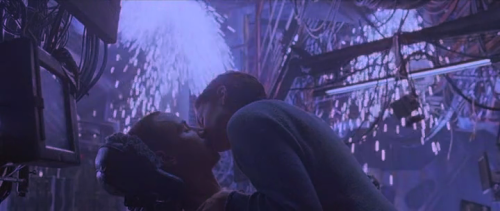In last week's Writing Advice post, I began to point out that it is, in writing, just as important to pay attention to the words as the story. After all, words are what we're using to paint the picture - and we want to paint the clearest picture possible.
A second insight from the tone comes from not how Reacher narrates (unlike the first), but what he narrates. He tells us that he was arrested on sentence one. Then, while the natural thing to do would but explain how he got arrested, instead Reacher tells us what he was eating, when, and makes sure we know that it was a late breakfast, rather than lunch. It's as if the arrest wasn't even important - like it's just one of the things that happen every day. No big deal. No for Jack Reacher, anyway.
 This is a great use of tone, because it provides insight. But sometimes, tone can get in the way of the story. An example from The Hunger Games (don't get me wrong - I love this book), that I find very borderline in this context is:
This is a great use of tone, because it provides insight. But sometimes, tone can get in the way of the story. An example from The Hunger Games (don't get me wrong - I love this book), that I find very borderline in this context is:
And there you go. That's tone. It gives insight into the mind of a character simply through the way they narrate the story (and sometimes what they narrate), but sometimes it detracts from the story. So, as the writer, it's your job to work out when to tone it up, and when to tone it down.
Tone, like sound, is an aspect of writing that can pull the reader out of the story if done poorly. It is on the same spectrum as sound, although at the opposite end. While sound deals mostly with sentence construction and repetition of words, tone has no such connection to technicalities (instead, it's more connected to writing as an art). Sound is objective, tone is subjective. Sound is about the perception of the reader, tone is about the intention of the writer.
Tone is the intention with which the narrator addresses the reader. In novels with third-person narrators, the tone is usually unnoticeable, because when the writer is the narrator, they only have one purpose: to tell the story. Little work on tone is needed. But when a character, rather than the writer, is the narrator, their task is not only to tell the story, but also the provide insight into their thoughts and opinions and nature.
For example, Killing Floor by Lee Child, narrated by tough-guy ex-military cop Jack Reacher, opens with this paragraph:
This narration, with clipped and fragmented sentences, may seem more to do with sound than tone at a surface glance. But, in actual fact, it is a technique used to develop the tone. In this case, we immediately learn that Jack Reacher does not waste words. He says what he has to - nothing more. This one insight into his character, right from the start."I was arrested in Eno's diner. At twelve o'clock. I was eating eggs and drinking coffee. A late breakfast, not lunch. I was wet and tired after a long walk in the heavy rain. All the way from the highway to the edge of town."
A second insight from the tone comes from not how Reacher narrates (unlike the first), but what he narrates. He tells us that he was arrested on sentence one. Then, while the natural thing to do would but explain how he got arrested, instead Reacher tells us what he was eating, when, and makes sure we know that it was a late breakfast, rather than lunch. It's as if the arrest wasn't even important - like it's just one of the things that happen every day. No big deal. No for Jack Reacher, anyway.
 This is a great use of tone, because it provides insight. But sometimes, tone can get in the way of the story. An example from The Hunger Games (don't get me wrong - I love this book), that I find very borderline in this context is:
This is a great use of tone, because it provides insight. But sometimes, tone can get in the way of the story. An example from The Hunger Games (don't get me wrong - I love this book), that I find very borderline in this context is:"The girl with the arrows, Glimmer I hear someone call her - ugh, the names the people in District 1 give their children are so ridiculous - anyway, Glimmer scales the tree until the branches begin to crack under her feet and then has the good sense to stop."While this expresses Katniss's opinion (and opinionate nature) I felt that this sentence stopped the story dead for a few moments. At that point in time, I didn't want to hear Katniss's view on Glimmer's name, I just wanted her to tell me what happened next.
And there you go. That's tone. It gives insight into the mind of a character simply through the way they narrate the story (and sometimes what they narrate), but sometimes it detracts from the story. So, as the writer, it's your job to work out when to tone it up, and when to tone it down.










